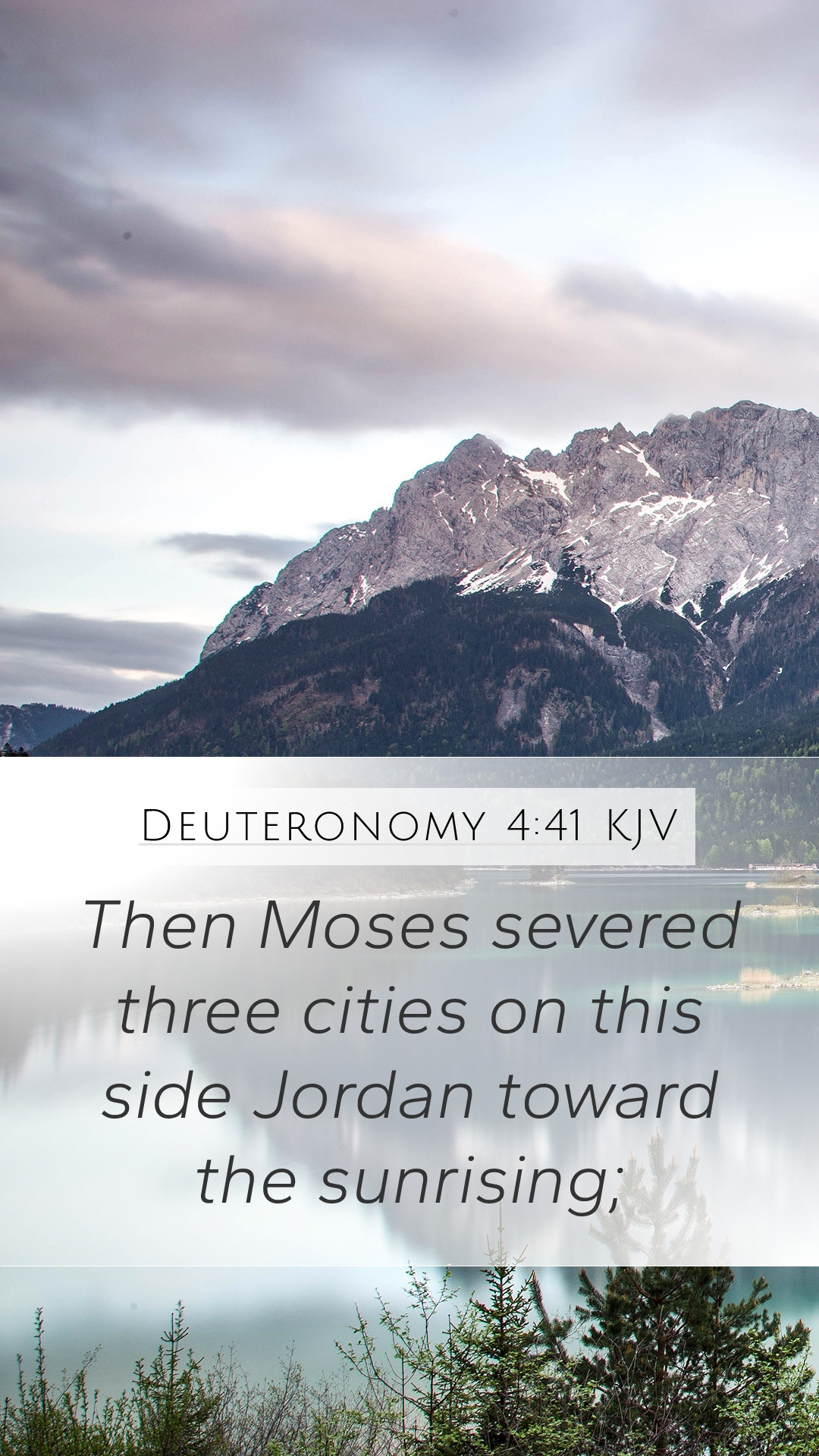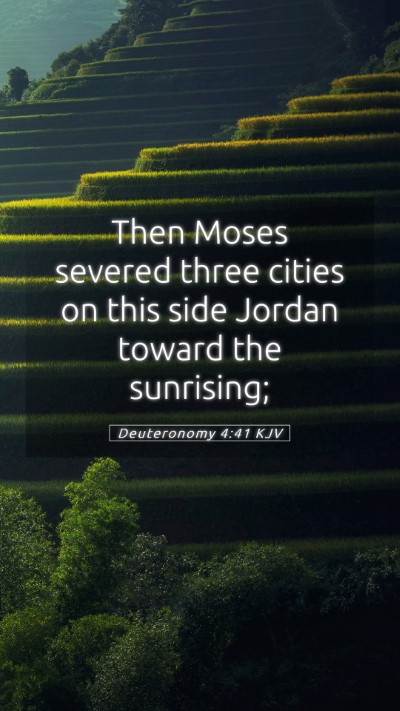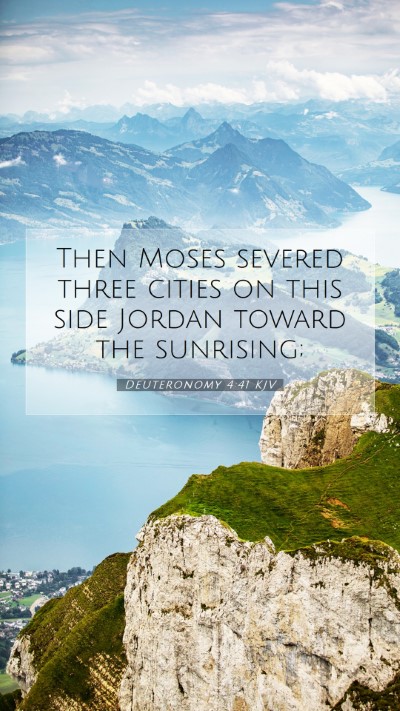Understanding Deuteronomy 4:41
Deuteronomy 4:41: "Then Moses set apart three cities on this side of the Jordan toward the rising of the sun."
Bible Verse Meanings
This verse marks a pivotal moment in the Mosaic Law where Moses designates specific cities as cities of refuge. According to the tradition in ancient Israel, these cities provided safe havens for those who committed unintentional manslaughter. The emphasis on the east side of the Jordan River highlights the importance of justice and mercy in governance and the effective execution of the law.
Bible Verse Interpretations
Commentators such as Matthew Henry interpret this setting apart of cities as a reflection of God's mercy. These cities were vital for ensuring that unintentional crimes did not lead to the death of innocent lives, demonstrating God's provision for protecting the vulnerable. Albert Barnes emphasizes that the choice of cities was deliberate, fulfilling the divine instructions previously given, thus showcasing the structure in the distribution of justice.
Bible Verse Understanding
In understanding this passage, we see that it introduces the concept of asylum in the ancient law. Adam Clarke brings attention to the geographic context, noting how these cities were positioned to be accessible for any needing refuge, thus revealing God's compassionate nature and the societal responsibility of providing protection.
Bible Verse Explanations
The explanation provided by the commentaries can also draw connections to the theme of atonement and forgiveness. The cities served as places of protection until the accused could stand trial, symbolizing the idea of seeking justice while still adhering to mercy and grace.
Bible Verse Commentary Insights
- Matthew Henry: Suggests that the cities of refuge exemplify the need for mercy within the structure of the law, and these provisions signify a larger theological truth about God’s character.
- Albert Barnes: Highlights the significance of these cities being strategically located, ensuring access even for the most distressed individuals needing refuge.
- Adam Clarke: Comments on the administrative aspect, explaining that the law is a foundational component of the Israelite societal structure.
In-Depth Bible Verse Analysis
This part of scripture can be analyzed deeply through various lenses including historical context, legal structures, and theological implications. It encourages modern readers to consider how judicial systems operate today, incorporating mercy as a core value while still upholding justice.
Key Themes:
- The Mercy of God: Embodied through the cities of refuge.
- Justice and the Law: How laws can be instituted without sacrificing compassion.
- Community Protection: Reflective of societal responsibility in maintaining peace and order.
Application of Bible Verses to Daily Life:
Modern applications of this verse invite reflection on how we extend grace and mercy to others in our communities, particularly in situations of conflict or misunderstanding. It challenges us to create environments that foster safety and justice.
Related Bible Cross References
- Numbers 35:6-34: Correlates with the establishment of cities of refuge and the laws governing them.
- Joshua 20:2-6: Details the implementation of these cities following Moses’ instructions.
- Exodus 21:12-14: Discusses the principles of justice in cases of murder.
Conclusion
This scripture in Deuteronomy not only serves a practical purpose in law but also enriches our understanding of God's justice intertwined with mercy. It invites believers into a deeper comprehension of their own societal roles and encourages community-focused values.


